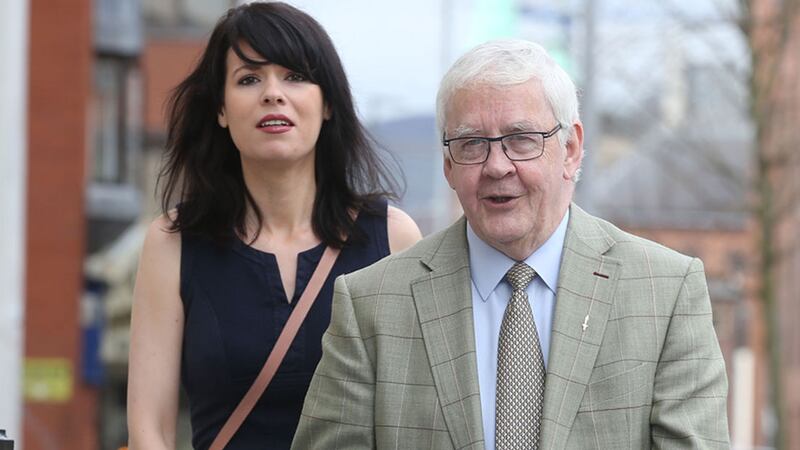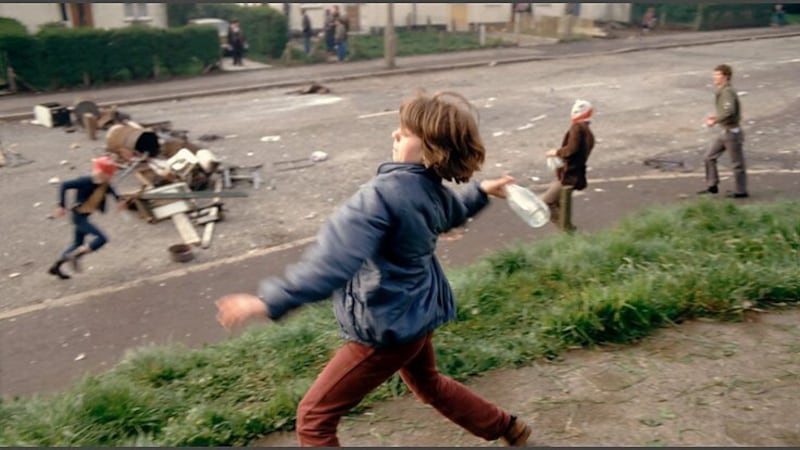No new evidence has emerged to compel further police investigation into suspected British government-sanctioned torture of 14 men during internment, the Court of Appeal heard today.
Counsel for the Chief Constable claimed a legal test which would trigger an obligation to seek the prosecution of anyone who perpetrated crimes against the so-called Hooded Men has not been met.
Contending that the group's case cannot succeed, Tony McGleenan QC said: "There wasn't a novel, credible allegation that required further investigative steps."
The PSNI is appealing a previous ruling that its decision to end preliminary inquiries into the men's deep interrogation back in 1971 was seriously flawed and should be quashed.
That verdict left the force facing a fresh process on how to handle allegations of ministerial involvement which emerged in a 2014 television documentary.
Surviving members of the Hooded Men brought the original proceedings against the Chief Constable, Secretary of State and the Department of Justice.
They argued the authorities have failed to comply with duties under the European Convention on Human Rights to properly probe and order a full inquiry into what happened to them while interned at British Army facilities in Ballykelly, Co Derry.
Five techniques were used against the men while they were held without trial: being hooded, made to stand spread-eagled in a stress position against a wall and beaten if they fell; forced to listen to constant loud static noise; and deprived of sleep, food and water.
Amid claims the men's treatment was sanctioned by the State, the court heard former British Prime Minister Edward Heath was involved in the decision making process.
Stormont's prime minister at the time, Brian Faulkner, was also personally briefed on the deployment of the techniques, according to their case.
RUC Special Branch officers were said to have been taught the methods by soldiers but sought assurances of immunity from prosecution before carrying them out.
Counsel for the Chief Constable and the British government has insisted, however, that a former British minister who alleged predecessors had authorised torture in Northern Ireland later corrected his assessment.
The claim made by Merlyn Rees in a newly discovered memo is central to the case.
In 1977 Mr Rees, then British Home Secretary, sent a letter to British Prime Minister James Callaghan setting out his views on procedures deployed against the men, the court heard.
In the memo he states it was his view that "the decision to use methods of torture in Northern Ireland in 1971/72 was taken by ministers - in particular Lord Carrington, then Secretary of State for Defence".
The document, uncovered from the National Archives in London, featured in an RTE documentary in 2014 and led to questions being raised at the Northern Ireland Policing Board.
But it was argued that within weeks Mr Rees' assessment of the men's treatment was modified to having faced deep interrogation.
It was stressed that in 1978 the European Court of Human Rights held the techniques constituted inhuman and degrading treatment - but fell short of torture.
Mr McGleenan also took the three appeal judges a series of investigations into the deep interrogation stretching back to 1971.
"The effect of that set of circumstances is that the attempt to engage (European) Convention obligations through the Human Rights Act cannot succeed... because the facts are not new," he submitted.
During exchanges Lord Chief Justice Sir Declan Morgan suggested police should have looked at whether someone authorised the five techniques, rather than the specific issue of torture.
"They didn't do that, and then they closed the book," he added.
Pressed by the judges about whether a criminal investigation will be undertaken, Mr McGleenan told them the Chief Constable was going to review the evidential material to establish if such a probe is required.
The appeal continues.








